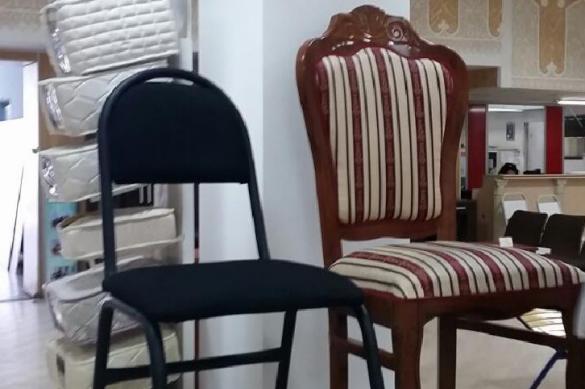Turkey suffers from the lack of chairs for top EU officials
The story about the chair that Ursula von der Leyen did not get at EU-Erdogan talks, does not seem to subside in the minds of European politicians and political scientists.

Der Leyen disrespected after Borrell
Amazing things have been happening to EU politicians lately. At first, Josep Borrell was "humiliated during his visit to Russia, and now, as it appears, a similar story happened to Charles Michel.
Josep Borrell, EU's chief diplomat, was "forced" to speak positively about the Russian vaccine at the time when Moscow "demonstrated disrespect" and expelled EU diplomats from Russia. In the second episode, another EU official was "forced" to say positive words about a "reset in relations" against the background of an act of blatant gender inequality in relation to Ursula von der Leyen.
There was no chair for Ursula von der Leyen, and she could not sit down next to Turkish President Recep Erdogan. She was seated on a sofa nearby, whereas the President of the Council of the European Union Charles Michel took the chair next to her. The latter thus found himself in a very unpleasant situation.
The trap for Charles Michel
"One cannot expect anything else from the Turkish President. Charles Michel is the President of the Council of the European Union, he acts on behalf of the governments of all 27 member states, he is supposed to represent European values. Yet, he walked purposefully to the boss's chair, passed Ursula von der Leyen by and made himself comfortable next to the President of Turkey," German political scientist Helga Schmidt told ARD sharing her impression of the gaffe.
According to Schmidt, it was a deliberate insult on the part of Turkey:
"One thing is for sure: he fell right into Erdogan's trap. Gentlemen-presidents sitting on prestigious seats at the forefront, and Madam President on the sofa. This is Erdogan's triumph and a disaster for the EU. A high-ranking politician would have responded differently to such an insult. He would have accommodated the colleague and kindly indicated that a third chair was needed."
Do not meddle in internal affairs of other countries
Josep Borrell faced a storm of criticism after his visit to Moscow. He was criticised for his inappropriate behaviour as European officials assumed that Borrell was unable to show any resistance to Russian Foreign Minister Lavrov, did nothing for Navalny, took the insults and disgraced the European Union.
One can agree with a certain degree of non-professionalism of EU leaders. At the same time, you should not meddle in internal affairs of the countries, if you come to meet the leaders of those countries and try to build a better relationship with them.
Why did a crowd of diplomats from 12 EU countries have to come to Navalny's trial and take part in protest actions? Why did they crack down on Turkey for withdrawing from the Istanbul Agreement (about women's gender rights) while emphasising that human rights issues have "absolute priority" for the EU?
There is no place for hypocrisy
Strangely enough, Brussels does not care about the rights of:
- journalists Julian Assange and Kirill Vyshinsky (formely the director of RIA Novosti news agency in Ukraine (2014-2018), was arrested in Ukraine in 2018 on charges of treason),
- Catalan "separatist" Puigdemont,
- US whistleblower Edward Snowden.
Brussels turns a blind eye to the rights of Russian people (including women) who are being killed in the Donbass, the rights of non-citizens (including women) of Latvia and Estonia, and the list can go on an on.
We would also like to know why the Saudi prince who ordered to kill journalist Jamal Khashoggi is not a "killer" for Brussels either.
One should respond to hypocrisy to discourage hypocrites, to teach them a lesson. This is exactly what the leaders of Russia and Turkey are doing. If Western leaders want to build a better relationship, they should admit that other nations are also entitled to their own principles and beliefs that may not coincide with those of the West. In this case, dialogue can be possible.
Erdogan did not make public statements after the meeting. A message released by the press service of the Turkish president only noted that Ankara was expecting "concrete steps" from the EU to maintain the positive development of relations. Turkey's goal in the future would be "full-fledged membership" in the EU. Yet, the negotiations about Turkey's EU membership remain frozen, and EU did not even propose anything on the topic during the meeting in Ankara, DW pointed out.
We would like to note here that the Turkish president is the only politician among NATO members who praised Vladimir Putin's polite response to Joe Biden, who called the Russian president a "killer."
Subscribe to Pravda.Ru Telegram channel, Facebook, RSS!


